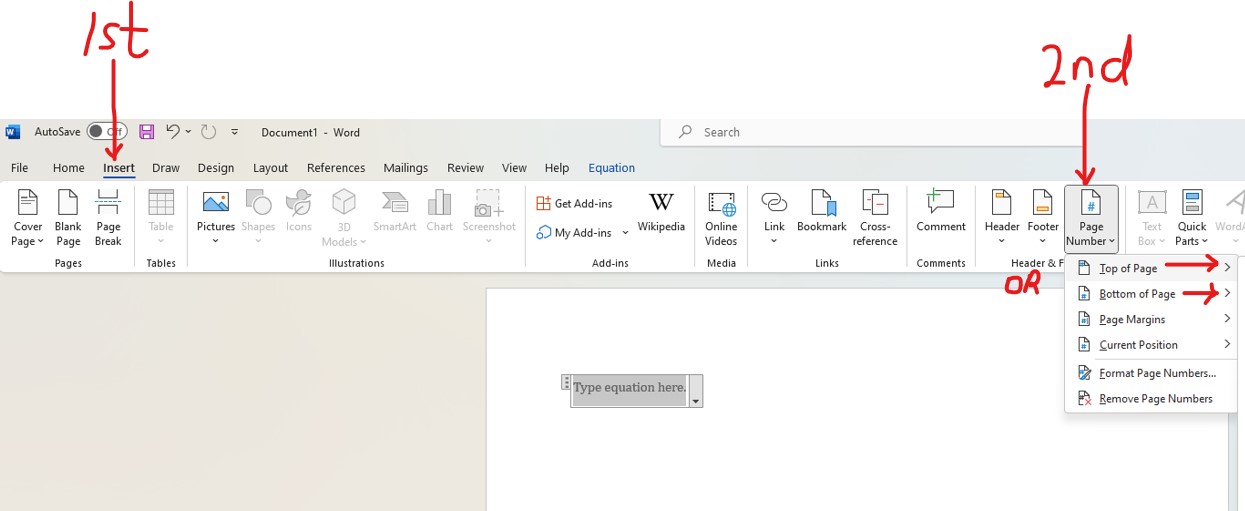Example Guide (Number Theory Project)
The use of a table is optional.
These minimum information including the calculations are required.
| Name: |
Your name |
| Date: |
The date |
| Instructor: |
Samuel Chukwuemeka |
| Project: |
Number Theory Application: Check Digits for International Standard Book Numbers (ISBNs)
|
Book Title:
Digital Access Title:
|
Finite Mathematics for the Managerial, Life, and Social Sciences.
WebAssign for Finite Mathematics for the Managerial 5 Months
|
| Copyright Year, Edition, and ISBNs: |
© 2018
12th edition
ISBN-10: 133787972X
ISBN-13: 9781337879729
|
| Objectives: |
(1.) Verify the check digit for ISBN-10
(2.) Verify the check digit for ISBN-13
(3.) Convert ISBN-10 to ISBN-13
(4.) Convert ISBN-13 to ISBN-10
|
| Calculations: |
Please see the calculations below.
Use any approach you prefer.
Write the name of any approach you use.
|
| References: |
Please cite your sources accordingly.
Indicate the citation format.
|
Calculations:
 ISBN-10:
ISBN-10: 133787972X (modulo 11)
1st Objective:
Given: 133787972-?
To Calculate: the check digit
1st Approach: Multiplication-Modulo Approach
$
1 * 1 = 1 \\[3ex]
3 * 2 = 6 \\[3ex]
3 * 3 = 9 \\[3ex]
7 * 4 = 28 \\[3ex]
8 * 5 = 40 \\[3ex]
7 * 6 = 42 \\[3ex]
9 * 7 = 63 \\[3ex]
7 * 8 = 56 \\[3ex]
2 * 9 = 18 \\[3ex]
\Sigma Products = 263 \\[3ex]
Remainder = 263 \mod 11 = 10 \\[3ex]
Check\;\;digit = Remainder = 10 = X \\[5ex]
$
2nd Approach: Multiplication-Modulo-Subtraction Approach
$
1 * 10 = 10 \\[3ex]
3 * 9 = 27 \\[3ex]
3 * 8 = 24 \\[3ex]
7 * 7 = 49 \\[3ex]
8 * 6 = 48 \\[3ex]
7 * 5 = 35 \\[3ex]
9 * 4 = 36 \\[3ex]
7 * 3 = 21 \\[3ex]
2 * 2 = 4 \\[3ex]
\Sigma Products = 254 \\[3ex]
Remainder = 254 \mod 11 = 1 \\[3ex]
Check\;\;digit = Modulo - Remainder \\[3ex]
= 11 - 1 \\[3ex]
= 10 \\[3ex]
= X \\[5ex]
$
ISBN-13: 9781337879729 (modulo 10)
2nd Objective:
Given: 978133787972-?
To Calculate: the check digit
Approach: Multiplication-Modulo-Subtraction Approach
$
9 * 1 = 9 \\[3ex]
7 * 3 = 21 \\[3ex]
8 * 1 = 8 \\[3ex]
1 * 3 = 3 \\[3ex]
3 * 1 = 3 \\[3ex]
3 * 3 = 9 \\[3ex]
7 * 1 = 7 \\[3ex]
8 * 3 = 24 \\[3ex]
7 * 1 = 7 \\[3ex]
9 * 3 = 27 \\[3ex]
7 * 1 = 7 \\[3ex]
2 * 3 = 6 \\[3ex]
\Sigma Products = 131 \\[3ex]
Remainder = 131 \mod 10 = 1 \\[3ex]
Check\;\;digit = Modulo - Remainder \\[3ex]
= 10 - 1 \\[3ex]
= 9 \\[3ex]
$
3rd Objective:
Given: ISBN-10: 133787972X
To Convert: to ISBN-13
(1.) Remove the check digit, X: we have 133787972
(2.) Replace it with the check digit for ISBN-13: we have 1337879729
(3.) Append 978 in front of the remaining digits: we have 9781337879729
∴ ISBN-13 is 9781337879729
OR
(1.) Remove the check digit, X: we have 133787972
(2.) Append 978 in front of the remaining digits: we have 978133787972
(3.) Calculate the check digit: we already calculated it to be 9
∴ ISBN-13 is 9781337879729
4th Objective:
Given: ISBN-13: 9781337879729
To Convert: to ISBN-10
(1.) Remove the check digit, 9: we have 978133787972
(2.) Replace it with the check digit for ISBN-10: we have 978133787972X
(3.) Remove the number: 978 from the front of the remaining digits: we have 133787972X
∴ ISBN-10 is 133787972X
OR
(1.) Remove the check digit, 9: we have 978133787972
(2.) Remove the number: 978 from the front of the remaining digits: we have 133787972
(3.) Calculate the check digit: we already calculated it to be X
∴ ISBN-10 is 133787972X






